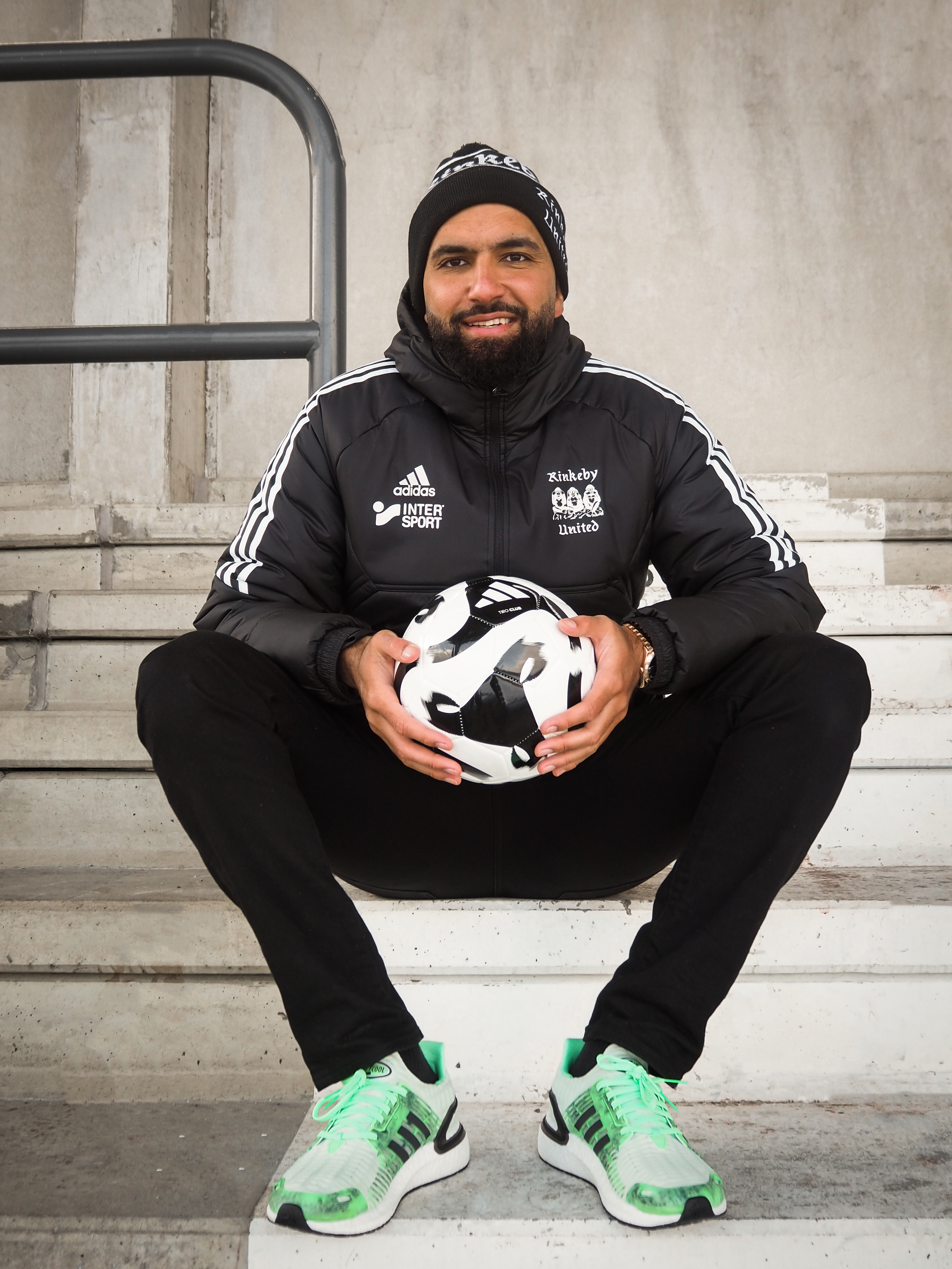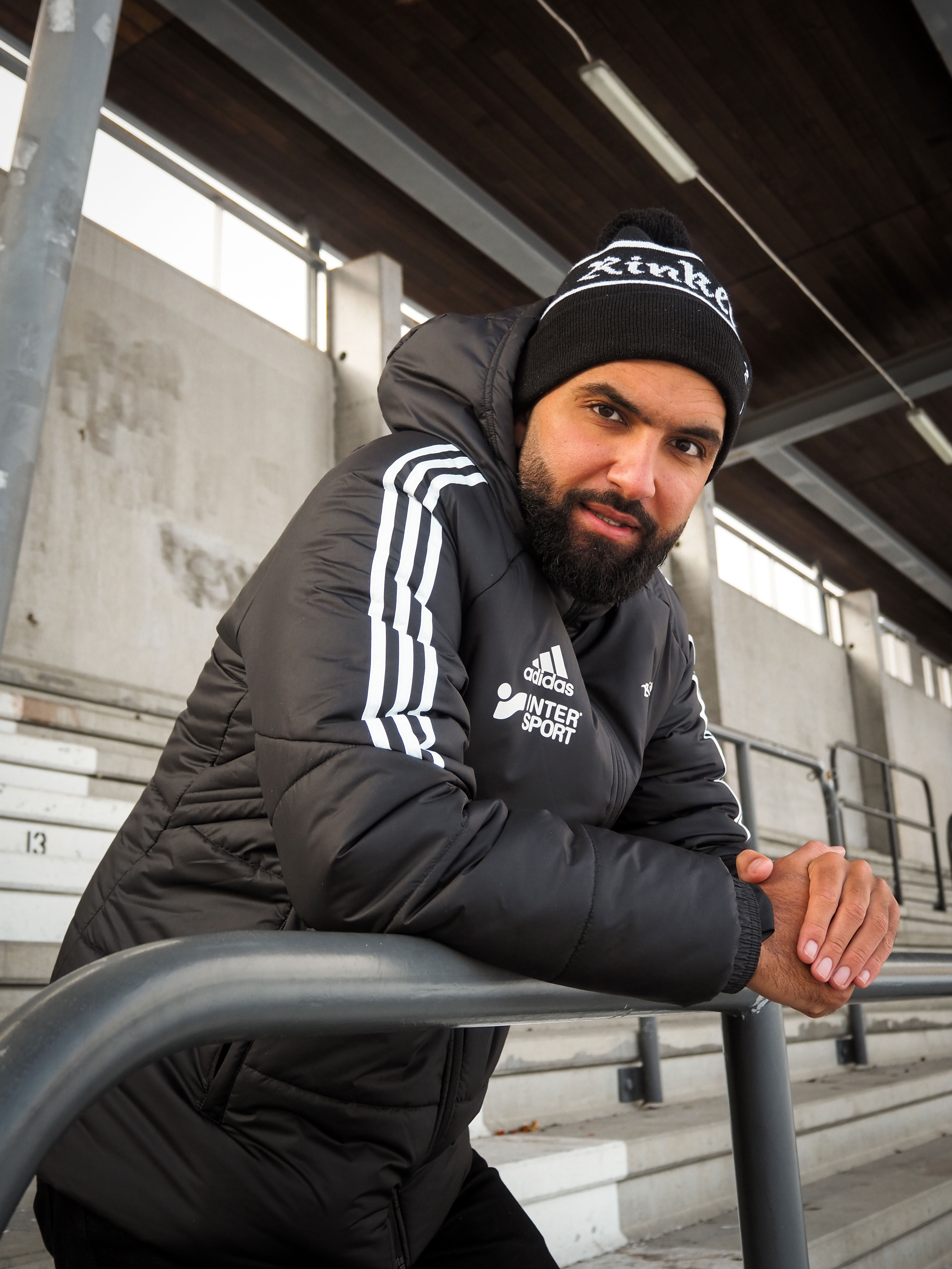COACH'S URGING: LISTEN TO THE ATHLETES
What does a coach need to consider during Ramadan with players who are fasting?
Ask Hasan Korkmaz, coach for Rinkeby United's A-team. ‘Taking fasting into account is, for me, a hygiene factor,’ he says.
Nearly a million Muslims live in Sweden, and many of them fast during Ramadan. However, the level of knowledge within the sports community varies. This is not the case when it comes to Hasan Korkmaz, coach for Rinkeby United.
“Here, many people fast or have a connection to Islam. In recent years, with social media and such, it has become more accepted within sports for people to fast and train during Ramadan. Especially when famous soccer professionals have been seen doing it,” he remarks.

Hasan is the assistant coach of Rinkeby United's A-team, which plays in division three. He himself has been involved with the club for ten years, and Ramadan comes around every year.
“I’ve encountered many players over the years who have fasted and continued to both train and play matches. Training and fasting are generally something that the body can benefit from.”
“If possible, I schedule the sessions as late as possible so that the players can eat straight after. Sometimes, training sessions are scheduled right after sunset, and the players get fruit and energy drinks before training,” he explains.
However, soccer's structured seasons make it challenging to adjust too much, even though Ramadan falls at different times each year.
“This year alone, the team and I have discussed pushing a bit more than usual because the sunset comes quite early. But it varies for different people. You have to have a dialogue about it. As a coach, you get to know your players, you know that some can handle more than others,” he notes.
During Ramadan, Hasan's role involves educating players on structuring training and diet to maintain physical fitness.
“Since it is so individual, it’s difficult to give general advice. If I have to give one piece of advice, it is to plan and consider your diet to be able to get all you need. It’s common to eat too much and too quickly when you finally get to eat. It’s better to have something small first and eat more later,” he suggests.

Hasan offers three pieces of advice for coaches:
1. Listen to athletes. Because ultimately, it’s crucial to understand how each individual is built and functions. Unfortunately, I believe that some coaches may still be quite old-fashioned and may insist on either fasting or training. But it doesn’t have to be that way. It’s fine to combine both, but of importance to not push the players beyond their limits. If it concerns young people and you see that someone cannot handle fasting, you need to address it. As a coach, you can be there to support and assist.
2. Do not worry. It is not dangerous to fast and train if you are healthy. On the contrary, it is something that can benefit you. Humans have been fasting for many generations, and we can endure longer than many think.
3. Absorb the atmosphere. Here in Rinkeby, there are many Muslims, so Ramadan is clearly noticeable in the area. Everyone is happy, and the big celebration after the month becomes a great and wonderful thing here.
Follow Hasan on Instagram, @korkmazz.h
